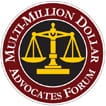Being involved in a car or motorcycle accident can be very stressful. There are probably a million things running through your mind and thinking about litigation is likely not the first thing on your mind. However, after things settle down a bit, you may start thinking about your options and how you can go about holding the responsible party accountable. So, how exactly do you prove who was at fault after an accident?
It will be very important after an accident to offer evidence of who was responsible. There are several ways that you can go about obtaining such evidence and making your case stronger. The first option would be to make sure you obtain a copy of the police report pertaining to the accident. Police don’t always respond to the scene of an accident, particularly if there are no injuries. However, it can be helpful to have the police respond and write up an official report.
Obtaining a copy of this report and any citations issued by the police can be a key piece of evidence in your case. If the police write up a report about your accident and you determine that the report contains a mistake, it may be possible to have the report amended or add your statement to the report.
In addition to a police report, state traffic laws can also prove very helpful for establishing fault after an accident. You can usually find copies of these codes at your local DMV or online in most states. You may find laws that are applicable to your particular accident that can help you in establishing who was responsible for the accident. For instance, if a car hits you from behind, it is almost always that driver’s fault. Similarly, in left-turn collisions, the responsibility almost always rests on the driver making the turn. There are, however, certain circumstances where you, or a third party, may share some responsibility.
Collecting evidence to support your claim of liability against the responsible party is essential to the success of any car accident case. It is important to consult with an experienced personal injury attorney who can assist you in developing the strongest possible case.
Source: FindLaw, “Car Accident Liability: Proving Fault in a Car Crash,” accessed May 08, 2018.








